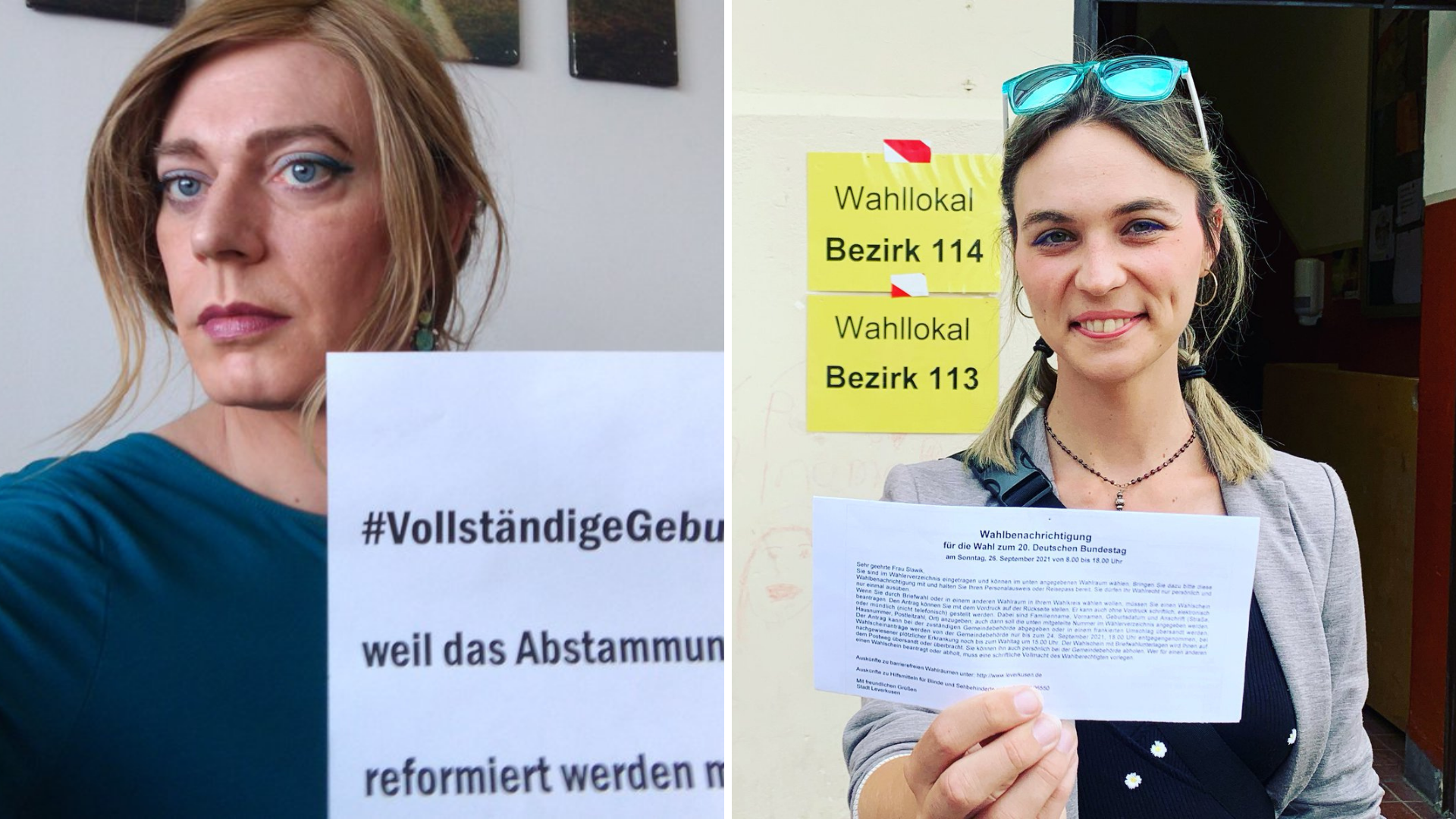Germany has never before had a transgender woman MP. Now it has two
Nyke Slawik and Tessa Ganserer have campaigned for more inclusive governance

Your support helps us to tell the story
From reproductive rights to climate change to Big Tech, The Independent is on the ground when the story is developing. Whether it's investigating the financials of Elon Musk's pro-Trump PAC or producing our latest documentary, 'The A Word', which shines a light on the American women fighting for reproductive rights, we know how important it is to parse out the facts from the messaging.
At such a critical moment in US history, we need reporters on the ground. Your donation allows us to keep sending journalists to speak to both sides of the story.
The Independent is trusted by Americans across the entire political spectrum. And unlike many other quality news outlets, we choose not to lock Americans out of our reporting and analysis with paywalls. We believe quality journalism should be available to everyone, paid for by those who can afford it.
Your support makes all the difference.In a historic moment for Germany’s LGBT+ community, two transgender women from the Green party have won parliamentary seats in the country’s election.
Becoming the first transgender women to enter the country’s parliament, Tessa Ganserer and Nyke Slawik described the results as “unbelievable” and a “historic victory”.
Ms Ganserer said the results were symbolic of an open and tolerant society. “It is a historic victory for the Greens, but also for the trans-emancipatory movement and for the entire queer community,” she said. Ms Ganserer was elected to Parliament from the southeastern state of Bavaria. She has been a member of the Bavarian state parliament since 2013.
“Madness! I still can’t quite believe it, but with this historic election result, I will definitely be a member of the next Bundestag [parliament],” said 27-year-old Ms Slawik on her Instagram. Ms Slawik will represent the western state of North-Rhine Westphalia.
The duo also helped push the Green party’s vote share to rank third in the recent elections. The centre-left Social Democrats won the largest vote share by a narrow margin, followed by Angela Merkel’s CDU-led conservative bloc.
The Greens have 14.8 per cent of the total vote share and are set to be part of a three-way coalition administration if one can be formed in the coming days. This is a sharp rise from the 8.9 per cent the party received in 2017.
With a liberal agenda on the cards, the two politicians are pushing for policies that reflect inclusive governance.
Ms Ganserer seeks to prioritise an easier procedure to ratify a change of gender identity documents, and allow lesbian mothers to adopt children through changes in existing German laws.
Ms Slawik’s LGBT+ agenda includes a nationwide action plan against homophobia and transphobia, a self-determination law, and betterment of the federal anti-discrimination law.
Germany decriminalised homosexuality in 1969 and legalised same-sex marriage in 2017 but the country’s progressive stride has been marred by increasing hate crimes against the queer community. These crimes surged by at least 36 per cent last year, according to official data.



Join our commenting forum
Join thought-provoking conversations, follow other Independent readers and see their replies
Comments